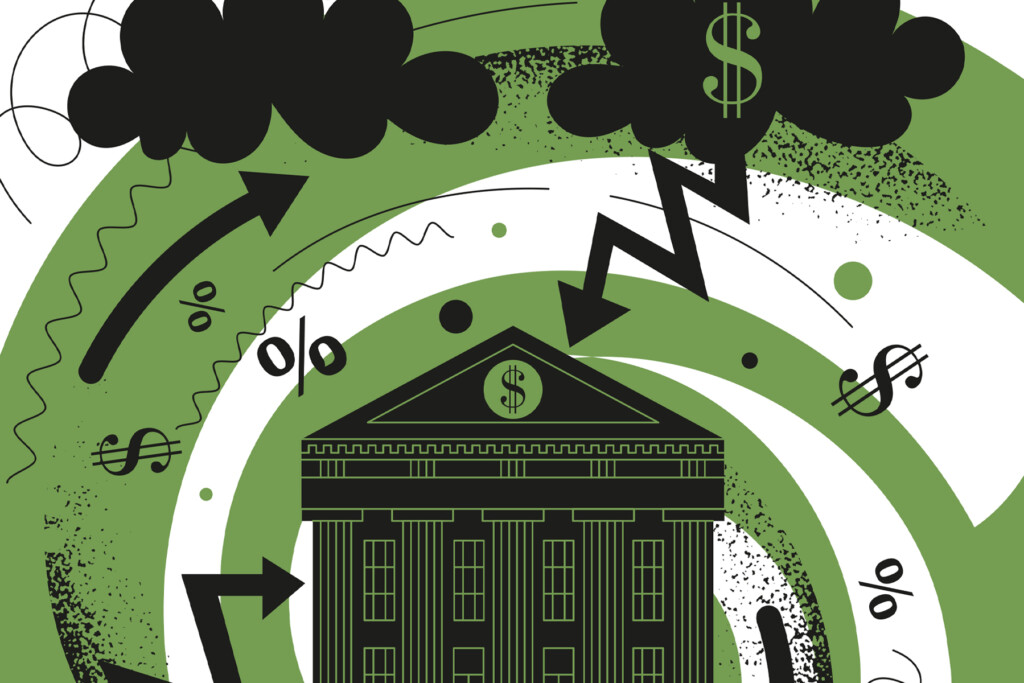From November 2022

You’ve heard it all by now: don’t panic, stay the course, stick to the plan, buy the dip. It does seem like sound advice for our chaotic financial times. Yes, sure, the markets are down. Markets do that. They go down, and they go back up. Always have. Always will. Past performance, they say, is a future indicator. So hold the line. Keep your 60/40 split of equities and fixed-income securities. Keep on investing.
Except, yo! Have you looked at your 401(k) lately? Your money is gone. And have you been to the grocery store this week? They’re pricing carrots like saffron.
This downturn feels different, doesn’t it? So maybe you should take drastic action and make some alternative investments. We’re not talking about traditional alternative investments like buying commodities—gold and farmland and such. We’re talking investments that are alternative to alternative. The kinds of investments your financial adviser would never recommend. Herewith we present five Totally Not Crazy Investments, each with a North Texas connection. Because that way, if you lose all your money, at least you’re keeping it local.
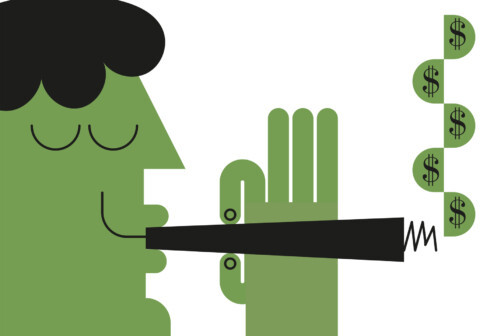
Put Your Money in Pot
Pssst. Hey, man, wanna buy some reefer? Get yourself some of dat sticky icky? Some schweed? Silly spinach? Wanna blaze some Bob Hope?
Well, don’t do that in Texas. It’s still mostly illegal here. But you can invest in the cannabis industry through a Dallas-based fund that will put your money into the hands of people who grow and sell products containing high-inducing amounts of tetrahydrocannabinol. Since 2014, Entourage Effect Capital has raised more than $200 million from investors, directing that money to legal cannabis businesses across the United States. Entourage Effect is now raising another $150 million through its third investment fund, which closes at the end of the year.
Matt Hawkins, Entourage Effect’s co-founder and managing partner, says his group treats cannabis as a serious business, dealing only with accredited investors and conducting due diligence on the companies it invests in. With its first two funds, Entourage Effect has taken minority stakes in more than 60 companies, including both small operators and power players.
That, says Hawkins, who spent 20 years in various roles in private equity before getting into cannabis investing, has helped fuel expansion in an industry that big investment institutions can’t touch. Because the federal government has declared illegal cannabis products containing concentrations of more than 0.3 percent THC, institutions insured by the federal government can’t support cannabis businesses even if they’re legally operating under states’ laws. “For cannabis,” Hawkins says, “there’s no bank lending, and there’s no large endowments or pension funds putting in billions of dollars. The industry is supported only by several hundred million dollars deployed by a few people like us. And that’s still not enough capital.”
By some projections, the legal cannabis industry could be worth $40 billion by 2025. And if the federal ban on high-inducing THC products does end, Hawkins expects institutional investors will race into the cannabis space, likely sparking mergers and acquisitions that could drive up the value of many cannabis companies. For a private investor, that means that if you get in on legal cannabis companies now, you may be buying low and selling high. (Get it?)
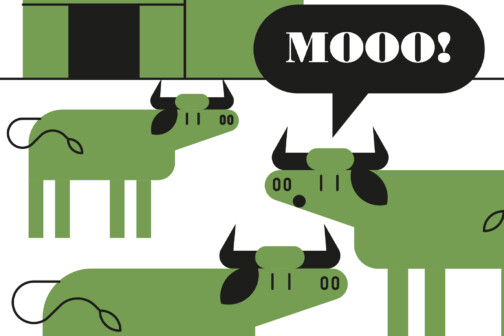
Buy the Farm, Literally
Most alternative investments in farms are investments in land. You put your money into a real estate investment trust that owns swaths of farmland and the REIT then leases that land to farmers. But who wants to buy the land when you can buy the farm? Or, at least, buy into the farm?
That’s the kind of investing that Fort Worth-based Harvest Returns has offered since its founding by two former military officers in 2016. One of those officers, a 30-year Navy veteran and North Texas native named Chris Rawley, says Harvest Returns was created to upend the traditional agricultural finance system. “That system really hasn’t changed a lot over the years,” Rawley says. “It’s sort of optimized to loan money to farmers and require them to mortgage their land in exchange. We thought that if farmers wanted to expand their businesses, bringing in outside equity investors could help them do that in a way where the farmer still maintains control of their operation.”
It works like this: every few weeks Harvest Returns lists a handful of new investments. All are targeted to only one ag business, one ranch, or one farm. A recent investment was in a seed round for a Dallas company called Precision Livestock Technologies. It offers electronic monitoring and analytics tools that help ranchers ensure their livestock are eating the right food, achieving the right weights, and staying in good health. Another investment went to expand operations at Dragon City Farms, an indoor hydroponic farm located near the intersection of Walnut Hill and I-35. It grows salad greens and gourmet mushrooms for both retail and wholesale clients.
Most of these investments will pay off—if they pay off—over a number of years as the farms, ranches, or ag companies get bigger, although some do pay annually if there are annual profits. Either way, you get to own part of the food chain without getting any dirt under your fingernails.
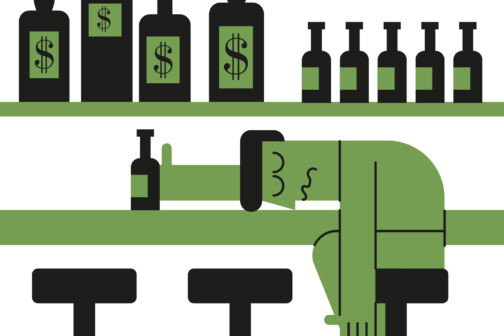
Buy a Bar
The New Yorker’s recent advice for riding out our inflationary wave was to stop spending money on alcohol. “Alcohol is a luxury for the rich,” the esteemed magazine for East Coast elites and people who like free tote bags declared. Our Totally Not Crazy Advice is the same. Stop spending money on alcohol. Instead, buy a bar and drink for free.
Matt Tobin, who co-owns Goodfriend, an East Dallas swillery where patrons have been moistening their mouths since 2011, says, “There are a lot of people that really enjoy getting to say, ‘I’m an investor or one of the owners of this bar.’ ” He says the bar business can also be pleasantly remunerative for a passive owner. “You can make quite a bit of money if you invest in the right place that’s run by people who know what they’re doing.”
An investor will need a lot of capital. In 2019, Restaurant Owner magazine reported startup costs for bars operating in rented spaces ranged from $125,000 to $550,000. Banks might lend that much money to an established operator, but for first-time bar owners, an LLC with several partners sharing the risk is often the easier way to go.
But from there, the business can be sobering. “The bar and restaurant business is very romanticized,” Tobin says. “You show up at a bar when it’s super busy and you’re like, ‘This is awesome.’ But so much work goes into it when the lights are off and the place is empty.” He says this as he is driving to Goodfriend to meet a contractor who has to fix one of the many somethings or others that always need fixing.
That’s why the linchpins to your successful bar investment will be people like Tobin and his partner, Josh Yingling, because they’ll be the ones giving up weekends and holidays in perpetuity to make sure the taps are clear, the glasses are clean, and the bartenders are on the job. But even if you could hire that kind of management, “a lot of bars still just muddle along,” Tobin says. “Maybe only about 10 percent will pay off. So from a passive investment side, I wouldn’t recommend it at all.”
Take that advice if you like. But don’t forget: alcohol is delicious, and it makes you feel pretty.
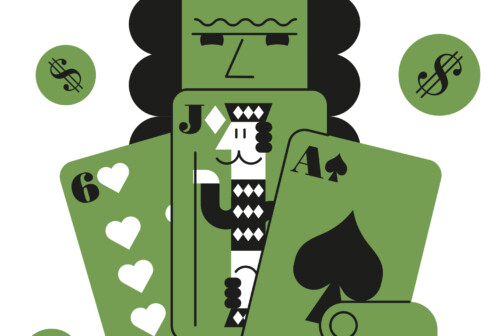
Bankroll a Poker Player
With ace-5 suited and sitting under the gun, you should definitely make a bet of at least five times the big blind. Or not? Who really knows? A professional poker player, maybe. Good thing you can now invest your money in players around the world in exchange for a share of their winnings.
That’s called “staking,” and there are any number of ways to get involved. Some pros find their backers by crowdsourcing them before playing in a tournament. (You can find those kinds of goings on at the online poker forum Two Plus Two.) Others find individual backers through sites such as YouStake.com. Still others rely on professional outfits like Imawhale Staking Group, a Las Vegas group established in 2009 by McKinney native Shane Sigsbee.
“Professional poker is capital intensive,” Sigsbee says. “You don’t just win week after week. There’s a lot of variances in a poker player’s results. Using a capital backer like myself takes the stress out of that variance and lets the player know they can pay their rent if they’re having a down month.”
Sigsbee is a Notre Dame graduate with a finance degree who spent two years or so trading derivatives in Chicago before briefly turning pro and then getting into the staking business. He works with about 50 players. Most are in the United States. All play online.
His staking arrangement is typical of other staking companies. Each month, he bankrolls players up to a certain amount (some staking companies will provide small bankrolls of $2,000 a month, others will back players with $100,000 or more). In exchange for backing, Imawhale takes 50 percent of a player’s winnings while absorbing 100 percent of the player’s losses. When losses exceed wins, Sigsbee’s company takes all the player’s winnings until the difference is made up.
At sites like YouStake, the terms are simpler. You back a player’s buy-in for a tournament—it might be $3,000, it might be $30,000—and you get a share of whatever they win, if they finish in the money. You can also back the buy-in with small increments (as little as a quarter in some cases) and get a smaller share of the pot—again, if your “staked” player wins.
If that sounds a whole lot like gambling on poker, well, it kind of is. But it’s easier than spending all night with your poker pals or flying to Vegas to play in a tournament yourself. And who wants to do that stuff anymore? “Poker is not as popular as it was a few years ago,” Sigsbee says. “But there’s still money to be made from the backing end of things. That’s why I’m still in business.”
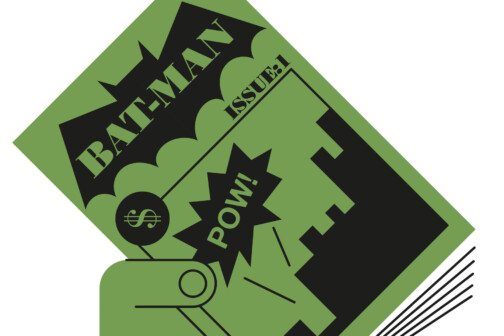
Collect Comics
In the fight against his arch nemesis Dr. Stagflation, Federal Reserve Chairman Jerome Powell has increased interest rates. Bap! He’s reduced the money supply. Thwack! But Investment City is still a dangerous place to be. The kind of place that could use a hero or two. Could Captain America or Spider-Man or Superman save the day?
Consider: comic books are booming. In September 2021, Dallas-based Heritage Auctions handled the $3.6 million sale of a copy of Amazing Fantasy “No. 15”, the 1962 debut of Spider-Man. In April of this year, Heritage sold a copy of Captain America “No. 1”, from 1941, for $3.1 million. Those were two of the top four highest prices ever paid for comic books. And in just two auctions, in late 2021 and early 2022, Heritage sold more than $41 million worth of comics—record-setting numbers. “There’s a tremendous, explosive growth across a broad swath of the collectibles marketplace,” says Josh Benesh, Heritage Auctions’ chief strategy officer. “We’ve seen record prices for things like comic books and video games and Pokemon cards and all sorts of pop culture collectibles.”
Cashing in on that interest by buying and selling comics, in particular, as an investment makes some economic sense. Old comics are generally limited in supply, and right now demand is high. Supply, demand. You know the formula, and you know it means that prices have continued to rise. That can equal profit if you find rare enough titles in good enough condition and match that to a lot of willing buyers. Collectors of Moon Knight comics from the 1980s, for instance, saw values skyrocket after Marvel gave that hero his own bizarre streaming show.
If you are smart (or lucky) enough to find another Moon Knight, then it’s Zap! Money! Or maybe not. After all, we know the Man of Steel is bulletproof, but is he recession-proof?
“I’m hesitant to confirm the idea that if you buy something today, five years from now, you could be assured that it’ll be worth more,” Benesh says. “With collectibles, you should buy what you love and buy what makes you happy to have in your possession. If the market moves in the right direction and you end up investing a dollar and making five, then that should just be icing on the cake.”
This story originally appeared in the November issue of D Magazine with the headline, “Risky Business.” Write to [email protected].


